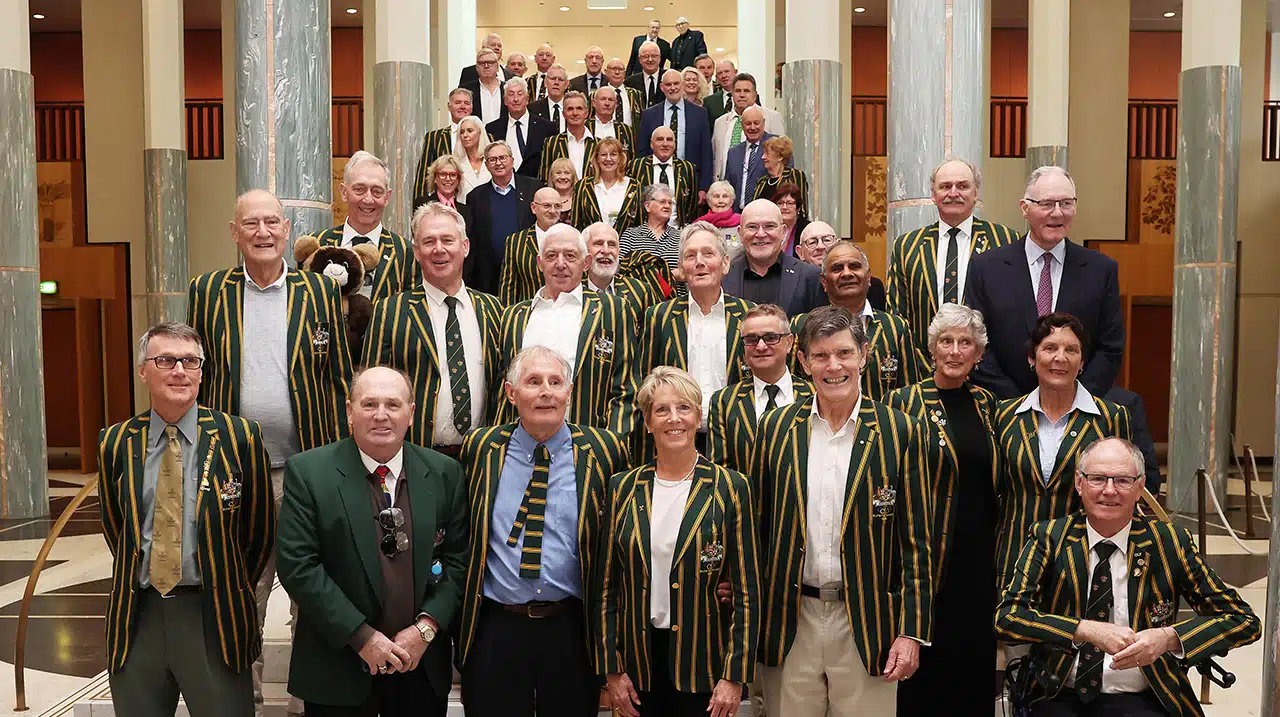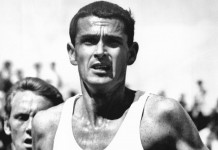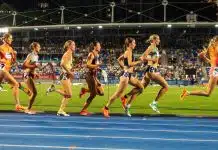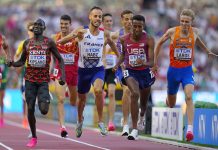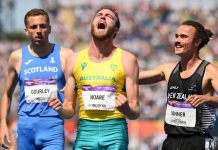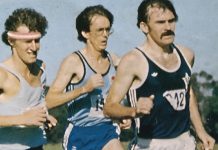Talk about come in from the cold. This week, Wednesday 30 July, the Parliament gave a belated welcome home for the Moscow 1980 Australian Olympic team.
Prime Minister Anthony Albanese gave the welcome. Leader of the Opposition Sussan Ley concurred (not without demur; see later). ‘Albo’ did not name check one of his predecessors as a Labor PM, Gough Whitlam, but the simple acknowledgement of the team had more than a hint of “It’s Time.”

As over 100 team members, ‘plus ones,’ and others watched from the public gallery, the parliament gave the 1980 team the welcome home (minus parade, alas) it would have received after any other Olympic Games and should have received in 1980. But it didn’t.
The 1980 Olympians didn’t have a send-off either, just a hostile media characterising their otherwise normal departures as “sneaking out,” wilfully blind to the fact that many ‘snuck out’ wearing their hard-to-miss team blazers.
Albanese was brief and succinct: “We recognise your participation. But importantly as well, we recognise your pain,” he said, adding, “we extend that recognition to all those who cannot be with us today” in a poignant reference to team members who have passed away or did not want to put themselves through painful memories.
Sussan Ley echoed the positive sentiments expressed by the PM before veering onto a jarring justification for the decision by then Liberal prime minister Malcolm Fraser to support the US-led boycott against the Soviet Union’s intervention in Afghanistan.
“The decision made by former prime minister Malcolm Fraser to support the US-led boycott was the right one, and history has judged it so,” said Ley. “We would not send athletes to an Olympics in Moscow today, and the Australian government was right to support a boycott then.”
In this, Ley bizarrely contradicted Malcolm Fraser’s own views as he expressed them later in life.
On calls for a boycott of the Beijing 2008 Olympics over, inter alia, China’s policies on Tibet, Fraser told the ABC’s Jon Faine that boycotts didn’t work. He characterised the 1980 boycott campaign as bad and divisive policy. US president Jimmy Carter had jumped from a proposed response to a unilateral call for a boycott leaving Australia with little choice but to back America.
Realising the implications of Fraser’s comments I followed up with the former PM. Fraser reiterated his view that it was bad and divisive policy and spoke of the impact on athletes: “The individual choices that were made created divisions within sports and between sports,” adding (emphasis mine), “It’s not something I would want to see repeated.”
So, there it is. Among those who would disagree with Sussan Ley’s characterisation of Malcolm Fraser’s decision as “the right one” is none other than Malcolm Fraser.
Enough of politicians. This column was intended as a personal reflection on the boycott campaign. As Olympic year began, I was running over 200 kilometres a week in preparation for the Olympic marathon trial to be held in Adelaide on the 1980 Easter weekend. That part worked – up to a point, anyway – but little else that year turned out as expected.
I was training with the Melbourne Pack led by Chris Wardlaw and Robert de Castella. Chris was heavily involved in the anti-boycott campaign, playing a key role in ensuring Australia got a team away (https://www.athletics.com.au/news/running-against-the-tide-how-wardlaw-helped-australia-say-yes-to-moscow/.
What Wardlaw describes as “this thing called the Defend the Olympics Committee” was, in effect, run from his kitchen table by Chris, his wife Marjorie, and me. Help came from many sources – friends and training partners dropped in when they had time, the Olympic Federation provided contact details for team members (couldn’t happen today because ‘privacy’), helpful ALP parliamentarians (few Libs took Fraser on) at state and Federal level used some of their electoral resources for mail-outs and telegrams.
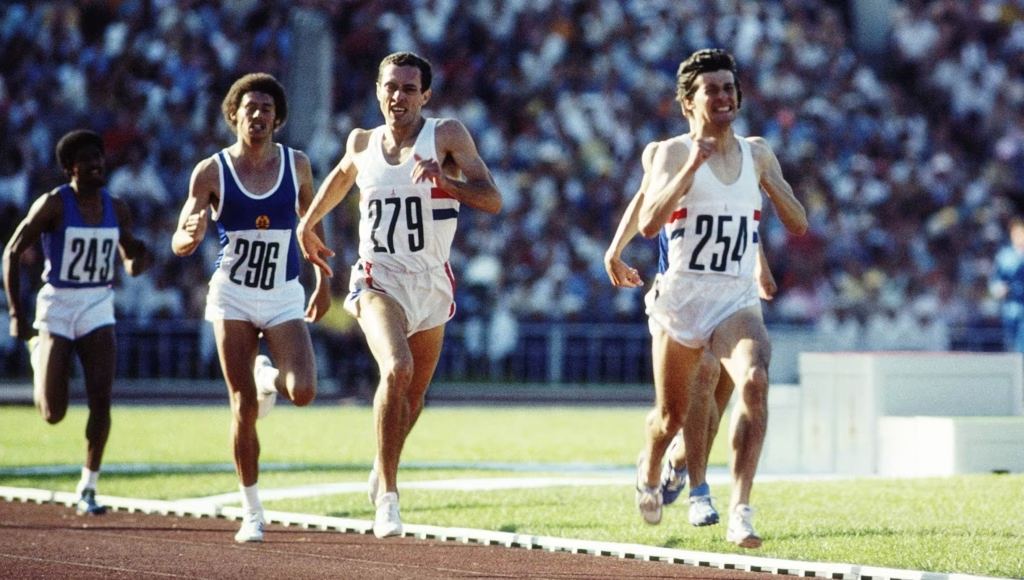
And then there were the ‘little’ people. One bloke sold Olympic pens at athletics meetings, footy games and the like, donating the proceeds. Others sent a small donation each payday week. A local typing and copying business donated its services for the letters we sent out encouraging all Olympians to stay the course. Largely, they did, but it hurt badly when individual federations pulled whole teams out.

Some heavy hitters appeared. Alan Renouf, head of the Department of Foreign Affairs under Whitlam, sent material on the international ramifications of a boycott and assessed some of the political claims being made by the government – “if World War III breaks out, you’ll be to blame!” A prominent military historian, Graham Keogh, analysed the government’s ceaseless (and largely baseless) comparison of the Moscow Games with the Berlin 1936 Olympics (and we know what happened after that!).
Out of it all, we produced a book – Olympic Boycott. We ‘had’ a publisher, provided we could produce a manuscript. Having done that, the publisher reversed ground saying they didn’t believe there was a book in it. We suspected they were ‘got at’, but we remain willing to publish, perhaps with Malcolm Fraser’s recantation refreshing the story?
Was it all worth it. Absolutely, the team got away though several prominent athletes were pressured out of going. As if the national debate wasn’t enough, stress levels were further heightened when the AOF narrowly decided to go on a 6-5 vote only for the PM to insist it reconsider (World War III got a big mention), but the second vote was 8-3 as two nays chose to uphold the original vote.
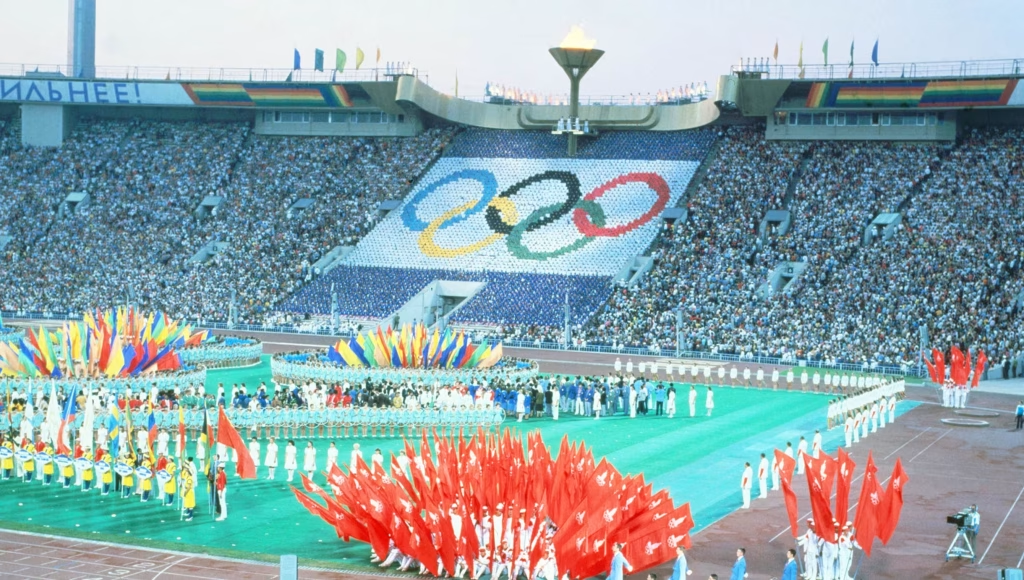
The emotional toll continues to this day as evidenced by some of the absentees from the welcome home. My personal view is the stress of six months combining marathon training with relentless campaigning severely compromised Chris Wardlaw’s performance.
Me? I was happy to run fifth in the Olympic Trials even if the first four were ‘out of sight’ of my 2:22. But the campaign and the boycott book project helped push me out of IT and into journalism which has overwhelmingly been a great experience.
And if/when my kids or grandkids ask what I did during the great Olympic boycott campaign, I’ve got a ready reply.
Note: the Parliamentary Hansard of the remarks by the Prime Minister and Leader of the Opposition (they’re brief) are here:


